For the people of Artsakh, the passage of a year since the displacement has not only meant wrestling with the darkness of loss and the emotional turmoil, it has also meant a struggle to provide for their families and to rebuild their lives.
Anna Mirzoyan, 33
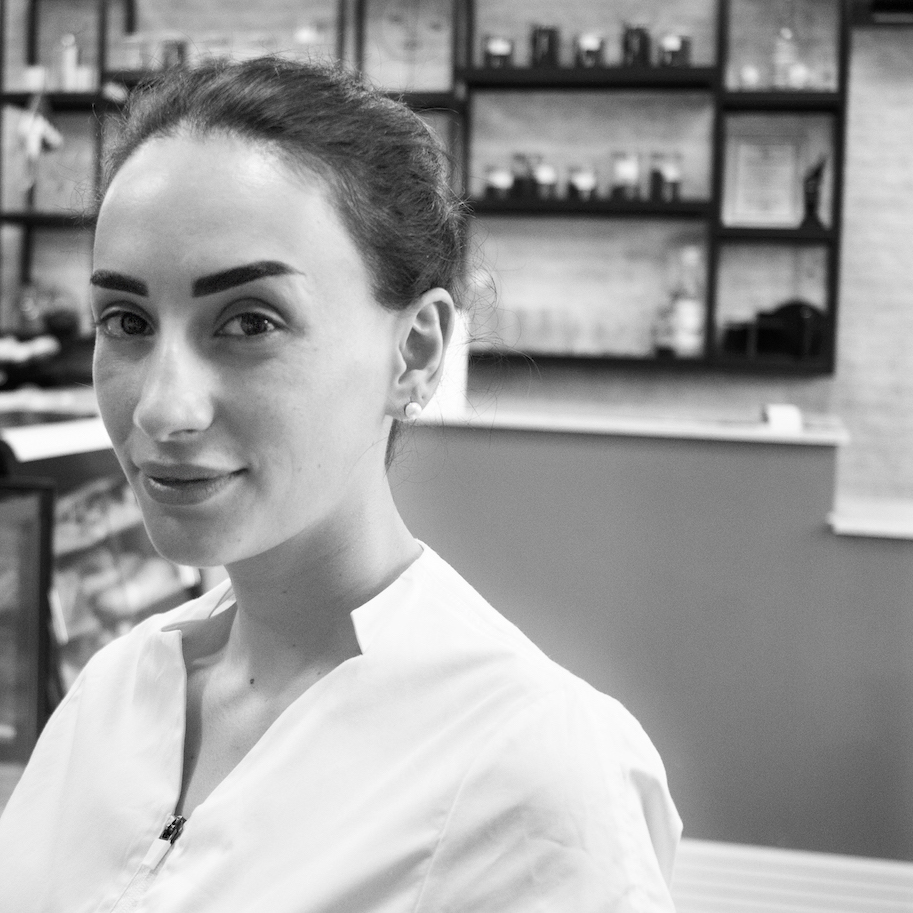
Picking myself up is nothing new for me. Ten years ago, when my husband died in a car crash, I realized that I had to learn to stand on my own. My parents were an immense help but I also clearly understood that I’m the one responsible for my daughter’s future. Maybe that is why I was able to adapt relatively quickly after the displacement. I decided to start a business, and within months I was able to start providing for my family.
I used to work at the Ministry of Economy in Artsakh and since that afforded me some free time, I started to bake at home. Gradually, the hobby became a business. Now I need to make sure it’s an established one.
Before, when I used to visit Yerevan, I would try to speak in literary Armenian, not speak in the Artsakh dialect. I no longer do that. I feel pride in being from Artsakh and I don’t want to hide my pain. And it is not that people feel sorry for me, I want everyone to remember the hardships people endured and the challenges they are trying to overcome to rebuild a life.
It might sound cruel but I want my daughter to feel pain for Artsakh so that years later, when we talk about Artsakh, she won’t be indifferent. If she does not grasp it now, if we don’t continue talking and remembering, she will not understand the loss and everything will be lost.
Albert Arushanyan, 53
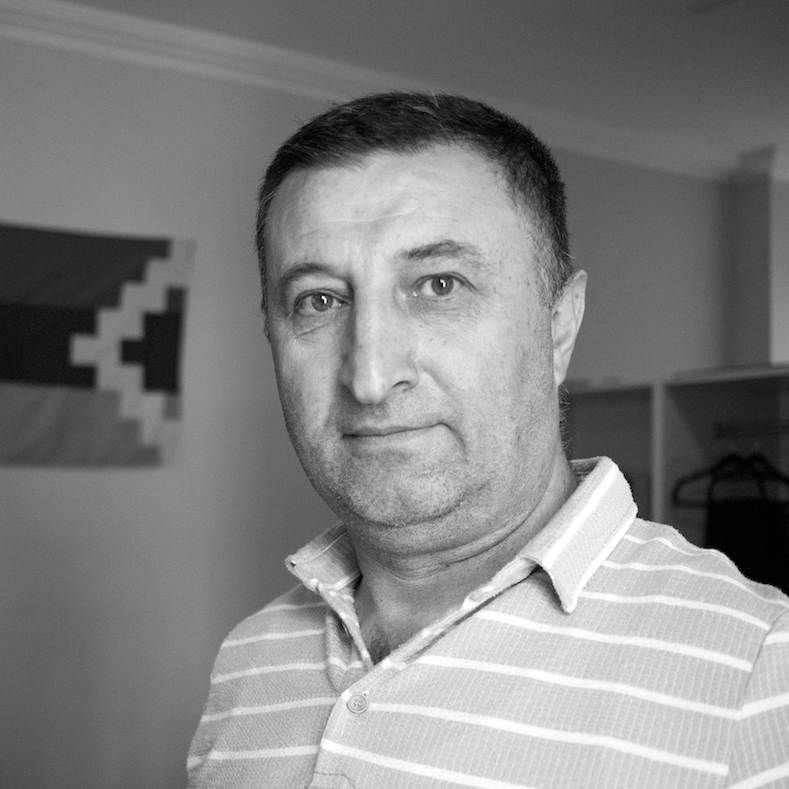
It’s difficult to describe our feelings. There are moments when I look at the flag on the wall and I get emotional. There are moments when we look out the window and imagine that we are seeing our house. I don’t know how things are going to pan out, but there is nothing to look forward to. The situation we are in is an extremely difficult one and we don’t want anyone to ever experience what we have.
We left behind the graves of loved ones. I cannot leave flowers at their graves for a moment’s peace of mind and soul.
There are people who say that we should have stayed and fought till the last breath. What they don’t consider is that the last casualties could have been the children. Many cannot understand what we lived through.
I have opened a tailor shop, that is how we make our living. We try to be useful and share our experience with other Armenians from Artsakh when they have issues starting their own businesses. Today, everything we do is not out of ambition, we don’t have much hope. We’re simply trying to take care of our daily needs.
I’m not sure if I’ll ever be able to come to terms with what happened but the primary concern now is to be able to provide for my family. Maybe the kids will adapt faster but that might be impossible for my generation. We will always look at our flag with teary eyes and see our old yard when we gaze out the window.
Aida Arustamyan, 57
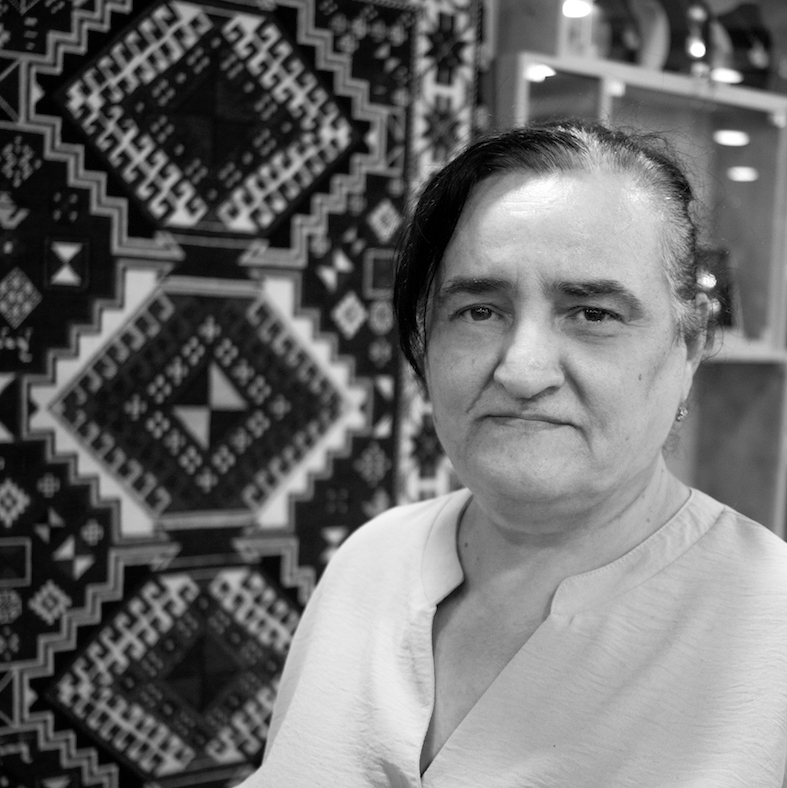
I’ve been weaving carpets since I was 17. I have 40 years of experience. Most of the carpets I’ve woven were left behind in Stepanakert. There were many great weavers in Artsakh, and carpet making was on the rise. Our work would be represented in international expositions and it would go to private collections. But not all of us are able to find work in Armenia. A few work at Artsakh Carpet in Yerevan, which is a small enterprise. The rest are scattered across the regions, where there are no carpet producers and jobs for carpet makers.
Other than documents and children’s belongings, we brought nothing else with us. Everything, my tools, threads, the design blueprints, my carpets were left behind. The most important thing that I still have is my knowledge, my means to make a living today.
When we were on Hakari bridge, I was praying that the children would make it through safely. We took a deep breath when we passed over…we had survived. But at the same time, I was unable to come to terms with the injustice, I kept thinking that we would eventually go back like we did after the 44 Day War. That hope has not died but I believe in it less and less.
Liana Hakopyan, 56
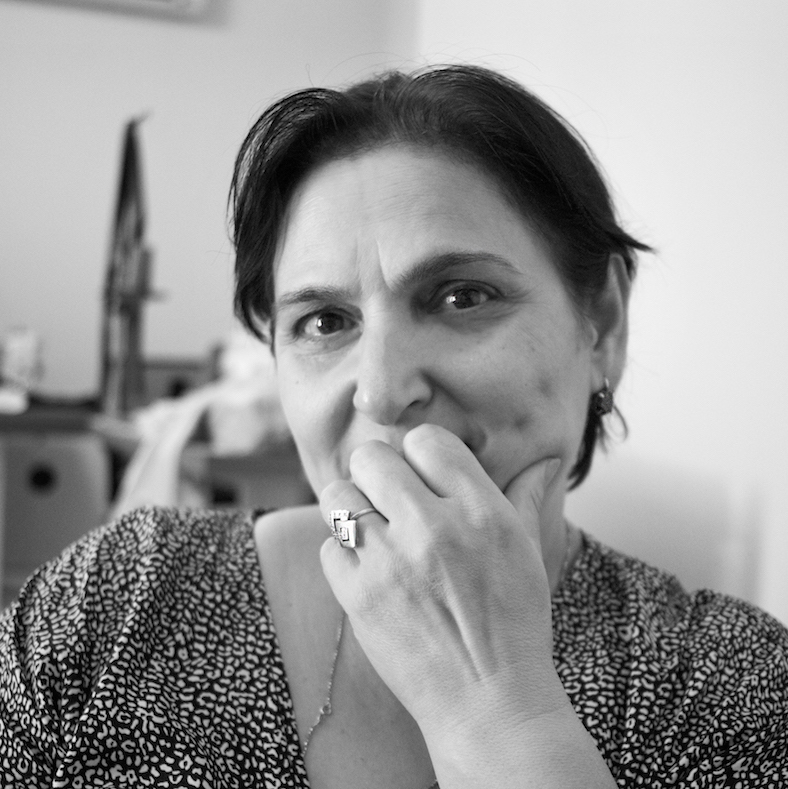
There are 11 of us living in a rental in Yerevan. I used to be a seamstress in Artsakh and that is how I make a living here. The hardest thing here has been the constant moving, the constant search for a job, not adjusting to one place, things not working out, the money not being enough. We are constantly trying to find more work to make sure the children are well taken care of. School just restarted and there are additional expenses.
The only time I truly detach from reality and feel happy and content is when I’m playing games with my three-year-old grandchild.
And it seems like the children have adjusted, that they are going on with their lives but recently a helicopter was flying by and my grandchild was staring at it. I asked, where do you think it is flying to? The child said, “home.” I asked where home was, and the answer was “Artsakh.” This from a child who has just learned to speak.
I still hope that one day I will return to Stapanakert, even though I know it does not make sense. Maybe it is the hoping and the dreaming that gives us strength.
Davit Beglaryan, 15
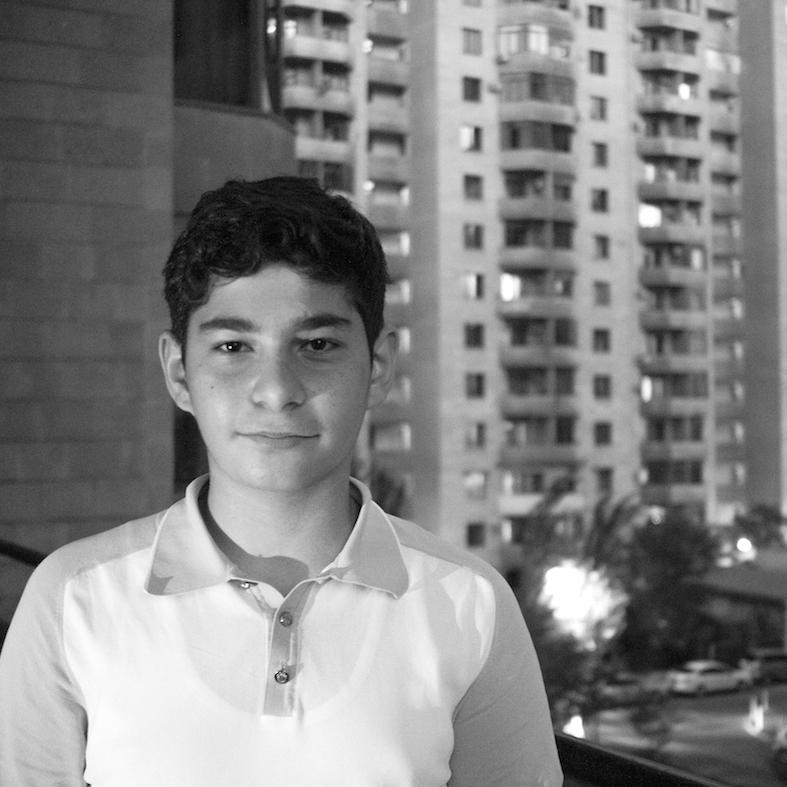
My dad called me Champion. He always said I was the best in everything. It has been a year that we have not had news from him. He is one of the 21 people still considered missing after the gas station blast in Stepanakert.
He had dedicated his whole life to the motherland. Each time he survived by some miracle. He has a medal for bravery and for the Liberation of Shushi.
I was one of the children from Artsakh who had come to Armenia to take part in the Eurovision Song Contest and we could not go back to Artsakh for 47 days because of the blockade.
In an interview when they asked who I was going to kiss as soon as I got home, I said, “Sorry mom, it will be dad.” I was so happy when we were finally able to go home, I was so happy to be with my family but I did not know how temporary that was going to be.
Me and my mom were one the last people to leave Stepanakert, because we were waiting for news from my father till the last moment.
I’m attending the Polytechnic College now, my plan is to take up a sport parallel to my studies, just like my father wanted me to.
There are three of us living in Yerevan, me, my mother and grandmother. My mother has three jobs.
When they ask me what my dream is, I keep silent. Isn’t it clear?

